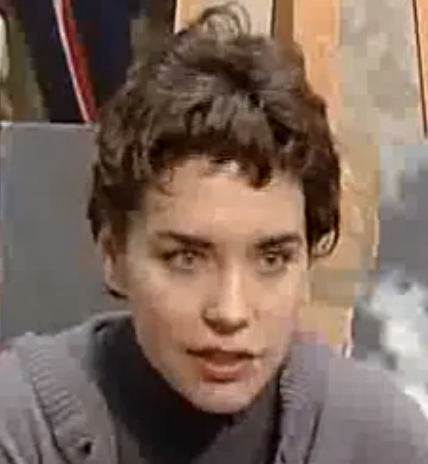An incident in Maidan Square in the central part of Kiev, Ukraine, February 18th triggered nightmares for former Memphian Christina Katrakis. She witnessed government forces and armed snipers gunning down young Ukrainian protesters demonstrating against now-ousted President Viktor Yanukovych’s decision to back away from broader Western ties in favor of a stronger Russian bond.

Christina Katrakis
“Subconsciously, it took me back to my childhood and the Chernobyl incident, and to the Georgia-Abkhazia war and its post-war chaos, to all the dead and wounded people and the smell of blood and death in the air that followed,” says Katrakis. “Sometimes I see this at night, as nightmares that probably will never really abandon me.”
Katrakis earned a master’s degree in fine arts from the University of Memphis in 2005, spending several years here as a teacher and lecturer, and building a national reputation as an artist: Her works are owned by Bill Clinton, George H.W. Bush, and Angelina Jolie, among others. Her art has helped her cope with her experiences living near the Chernobyl nuclear meltdown in 1986, and the Georgia-Abkhazia war six years later.
“Chernobyl happened only 13 miles from our summer home, when I was 6 years old,” Katrakis recalls. “We didn’t know for a while, because the Soviets kept it top secret. I was in the hospital for two years after I developed throat cancer. As an adult, I lost a child during pregnancy and another child who was six days old, because of lingering radiation.”
Painting has been her way to cope with these crises, to come to terms with them and move on. At the Memphis Botanic Garden gallery in 2010, she debuted a series of paintings called “The Zone” that were designed to illuminate the pain of Chernobyl. “I saw people cry, just looking at the work. These were many people who had never heard of Chernobyl. They saw my suffering, my Chernobyl.”
Katrakis, who works as a United Nations representative in Ukraine, sees many similarities between the earlier tragedies of her life and what is unfolding on a daily basis in Ukraine, particularly the Crimea region.
“This conflict has a lot in common with Chernobyl and with the Georgia-Abkhazia war,” she says. “It has all the makings of the evil of the Kremlin. During the Chernobyl crisis, the Kremlin blocked all information. No one knew what happened, so no one could help. The West and their medical experts were pushed aside while people were dying. The same was true when the Kremlin sent its military forces into Georgia’s province of Abkhazia and sparked the war trying to separate Abkhazia from Georgia and take it under Russian control. This is the exact same thing they are doing now in the Crimea. My question is, ‘When is enough? How many more have to die for the world to wake up and see the true face of the Kremlin?'”
The most difficult part of the Ukrainian crisis came early on, before Yanukovych fled to Russia, when many protesters were killed, Katrakis says. “It was difficult to watch mothers weeping over the dead bodies of their children, many of them shot by snipers. These were kids as young as 16. Seeing more than 100 of their funerals was heart-breaking.”
She says social media exposed many of the human rights violations: “Yanukovych of course did not calculate one simple thing: that this was no longer a Soviet ‘Stone Age.’ Video cameras recorded everything that happened and visuals were right away on TV and the Internet. We resisted bullets, guns, violence, and torture with this simple weapon of media, which allowed us to show the truth about what was happening to the world as it was happening.”
She dismisses Russian President Vladimir Putin’s claim that those in Crimea wish to separate from the country. “Putin invaded the country with his armed forces, which have taken over all the Ukrainian military bases in Crimea,” she says. “I feel the Russian goal is to divide the country by spreading propaganda and separatism, hoping that the eastern part of the country, together with Crimea, will become theirs.”
She says she feels the U.S., the European Union, and NATO need to intervene more forcefully: “If not, Russia will take over Crimea [and] will take over even part of Ukraine. A democratic stronghold will be lost.”
Gregory Russell is a publications editor at the University of Memphis.